
David Weller is a Professor of General Practice at the University of Edinburgh. He graduated from the University of Adelaide in 1982 and, after training in general practice and public health, he undertook PhD studies in Adelaide and Nottingham. At Edinburgh he is Postgraduate Dean for taught programmes and is Co-director of the Centre for Population Health Sciences. He has been Editor-in-Chief of the European Journal of Cancer Care since 2013. His long-standing research interests are in cancer screening, early diagnosis and survivorship. More recently he has become involved in cancer control projects in developing countries, supported by agencies including UICC and the British Council. He established the Cancer and Primary Care Research International Network (Ca-PRI) in 2007 (with the support of Professor Frede Olesen, Aarhus, Denmark) – this is now a global network, promoting research collaboration and capacity building in primary care and cancer. He is a member of the National Cancer Research Institute Primary Care Clinical Studies Development Group (Chair from 2003-2010) and is actively engaged in various government, policy and charity initiatives throughout the UK, relating to cancer research and cancer service development.

Dr Larissa Nekhlyudov is Professor of Medicine at Harvard Medical School and is a practicing primary care physician at the Brigham & Women's Hospital in Boston, Massachusetts. She is also Clinical Director, Internal Medicine for Cancer Survivors at the Dana-Farber Cancer Institute where she offers clinical care for long term survivors of childhood and adult cancers. Dr. Nekhlyudov is particularly interested in improving the care of cancer survivors and the interplay between primary and oncology care. Her publications (including journal articles, book chapters and two books) as well as her broad-ranging educational programs have promoted global awareness among health care providers about the ongoing needs of cancer patients across the care continuum. Dr. Nekhlyudov has been at the forefront of the field of cancer survivorship, nationally and internationally, by leading and participating in the development of policies, clinical guidelines, educational programs, and research. She is Deputy Editor of the Journal of Cancer Survivorship. In addition to serving on the Executive Board of the Cancer and Primary Care Research International Network (Ca-PRI), Dr. Nekhlyudov is an active member of the American Society of Clinical Oncology (ASCO), the National Comprehensive Cancer Network (NCCN), the Multinational Association for Supportive Care in Cancer (MASCC), the National Academies of Sciences, Engineering and Medicine (NASEM) National Cancer Policy Forum, among others. She was a Visiting Scholar at the National Cancer Institute where she developed a framework for quality cancer survivorship care. Throughout her career, Dr. Nekhlyudov has been dedicated to teaching and mentoring students, residents, fellows, and faculty. She has also been committed to empowering cancer survivors and caregivers through educational programs and advocacy.

Dr Christine Campbell is a Reader in Cancer and Primary Care at the Usher Institute at the University of Edinburgh. She leads a programme of research into public understanding of cancer, inequalities in cancer outcomes, and the role of primary care in screening provision and symptomatic diagnosis. She teaches on the Masters of Public Health course at the University of Edinburgh, and supervises undergraduate and postgraduate students. Current PhD projects include the role of national cancer initiatives in promoting early cancer diagnosis, and cervical cancer screening approaches in low resource settings. She was involved in the UK's NCRI Primary Care Clinical Studies Group from 2005 – 2017. She sits on the Advisory Panel of the Scottish Cancer Prevention Network and the Executive Group of Ca-PRI, and is a member of the Scottish Parliament Cross Party Group on Cancer.

Richard is Professor of Primary Care at the University of Exeter. Prior to this he was Professor of Primary Oncology in Leeds and Professor of Primary Care Medicine in Bangor. He is a part-time GP at St Leonard’s Practice in Exeter. His main research interests are in the diagnosis and management of cancers in general practice and in technological innovations in cancer diagnosis and screening.
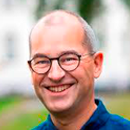
Dr Peter Vedsted is Professor of Primary Care at The Research Unit for General Practice, and Professor of Innovative Patient Pathways at Medical Diagnostic Centre, Aarhus University, Denmark. He is part of a research group for cancer diagnosis investigating the pathway from symptom and signs until commencement of treatment. The group develops innovative, integrated initiatives where primary care and secondary care cooperate and coordinate diagnostic pathways based on the 3-legged strategy. The group is involved in research on diagnosis of second or new primary cancer among cancer survivors, and is studying processes behind late diagnosis and how to care for uncurable cancer patients in primary care. The centre has a special focus on health services research and the organisation of healthcare and general practice. Dr. Vedsted is involved in many Danish initiatives to improve cancer diagnosis and patient pathways and is deeply engaged in how general practice can develop, and be supported in providing, earlier cancer diagnosis. The methodology includes register-based epidemiology, clinical research, anthropological and psychological methods.

Jon Emery is the Herman Professor of Primary Care Cancer Research at The University of Melbourne and Western Health, a new Chair developed within the Victorian Comprehensive Cancer Centre. He is an NHMRC Practitioner Fellow, Director of the Cancer Australia Primary Care Collaborative Cancer Clinical Trials Group (PC4), and a Visiting Research Fellow at the University of Cambridge.

Brian’s academic interests include cancer, global health, and evidence-based diagnosis. His research aims to improve the diagnostic process for patients with symptoms of cancer. This work focuses on understanding symptoms, appropriate test use, and developing clinical pathways. He leads the Cancer Theme at the Nuffield Department of Primary Care Health Sciences, at the University of Oxford, that conducts research in four main areas: health records data; implementation science; diagnostic reasoning; and clinical trials and prospective studies. He is Early Detection lead for the CRUK Oxford Cancer Centre investigating community-based multi-cancer early detection testing. He co-led SYMPLIFY1 investigating the performance of GRAIL’s Multi-Cancer Early Detection test in symptomatic patients referred for urgent cancer investigation. He is an NHS GP in Oxford City.
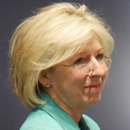
Fiona Walter is Director of the Wolfson Institute of Population Health, one of six Institutes at Queen Mary University of London’s Faculty of Medicine and Dentistry, and she contributes to leadership of the Centre for Cancer Screening, Prevention & Early Diagnosis as Professor in Primary Care Cancer Research. She also worked as an NHS GP for more than three decades. Her research focuses on developing and evaluating new diagnostics and diagnostic approaches to all aspects of prevention, early detection, and diagnosis of cancer in primary care. Fiona contributes to cancer research in Europe and the US and co-leads an NIHR Global Research Group ‘Advancing Early Diagnosis of Cancer across Southern Africa’. Her international work is marked by an honorary academic role at the University of Melbourne, Australia.
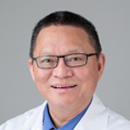
Dr Li is the Walter M. Seward Professor and Chair of Family Medicine at the University of Virginia (UVA) School of Medicine. He is also Co-Leader of the Cancer Prevention and Population Health program of UVA Comprehensive Cancer Center. He has served in these roles since 2019.
Dr Li’s research integrates genomic discoveries and population studies with a focus on colorectal cancer etiology, risk assessment, early detection, prevention, and health disparities. His research has been funded continuously by Damon-Runyon Cancer Research Foundation, National Cancer Institute (NCI), and American Cancer Society since 2001. He served as multi-Principal Investigator (MPI) of a NCI Special Program of Research Excellence (SPORE) planning grant (P20) for cancer health disparities, and project Co-leader of the NCI funded SPORE of GI Malignancy (P50) at the Case Comprehensive Cancer Center.
Dr Li served on a number of national and international organizations including the executive committees of the American Society of Preventive Oncology (ASPO) and the Research Development Committee of the Association of Departments of Family Medicine (ADFM). He is Editor-in-Chief of the international journal “Family Medicine and Community Health” published by BMJ. He is a member of the U.S. Preventive Services Task Force (USPSTF), and a member of the Centers for Medicare and Medicaid Services (CMS) Clinician Committee for the development of quality metrics for incentivizing effective delivery of cancer screening services.
Dr Li received his medical training and M.P.H. from Tongji Medical University in China, and his M.S. in Applied Biometry and Ph.D. in Preventive Medicine from Keck School of Medicine at the University of Southern California. He pursued his fellowship at the National Cancer Institute and completed a family medicine residency at University of Kentucky.

Dr Rosalind Adam is an academic general medical practitioner. She works in a city centre medical practice in Aberdeen, United Kingdom, and has clinical expertise in pain and symptom management. She is Senior Clinical Lecturer in Academic Primary Care at the University of Aberdeen. Rosalind was the first GP to be awarded a postdoctoral Scottish Senior Clinical Fellowship (CSO/NRS/ Scottish Universities, 2019 to 2026). She has secured over £1.5 million in research funding and is Principal Investigator on interdisciplinary research collaborations spanning medicine, engineering, and computer science. A core aim of her research is to improve clinical outcomes that matter to people living with and beyond cancer. She is researching multimorbidity and treatment burden in cancer and developing and testing digital interventions to improve cancer outcomes. Rosalind is also using digital sensing technologies to help quantify, understand and ultimately improve symptom experiences, particularly in people with fatigue and pain.

Patrick is a GP and Associate Professor in RCSI having previously worked as a clinical academic in Ireland, Australia, and the UK. He graduated in Ireland and then completed a PhD as part of the Health Research Board PhD Scholars Programme. He worked at The Healthcare Improvement Studies (THIS) Institute, University of Cambridge, the University of Western Australia, and at King's College London. His research is dedicated to enhancing the understanding of the cancer journey from diagnosis to survivorship, aiming to improve patient outcomes and reduce healthcare costs. Specific areas of focus include the development and validation of cancer risk prediction models in primary care, evaluating cancer screening modalities, and applying artificial intelligence to improve cancer detection. Beyond his academic roles, Patrick serves on the board of Beaumont Hospital, is a member of the RCSI Beaumont OECI Cancer Centre executive, and sits on the Association of University Departments of General Practice in Ireland (AUDGPI) committee.
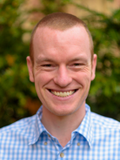
Dr Merriel is a GP in West Lancashire and NIHR Academic Clinical Lecturer in the Centre for Primary Care and Health Services Research at the University of Manchester. His main research interests include the prevention and early detection of cancer in primary care, and the development and evaluation of new diagnostic tests. Much of Sam’s research focuses on prostate cancer, but his research portfolio includes studies on new proteomic biomarkers for head & neck cancer, GP concordance with cancer diagnosis guidelines, and ethnic differences in blood tests commonly used for cancer detection in primary care. Sam holds roles as Associate editor of the British Journal of General Practice and Senior Editorial Board Member for BMC Cancer. He served on the recent National Institute for Health and Care Excellence (NICE) prostate cancer guidelines update committee in 2021, and he has been a member of expert reference groups for Prostate Cancer UK, Movember, the National Cancer Research Institute, and NHS England.
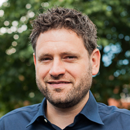
Daan Brandenbarg is a clinical epidemiologist and Assistant Professor in the Department of Primary and Long-term Care at the University Medical Center Groningen, the Netherlands. He leads the department's research group, "Oncology in Primary Care," with a focus on conducting research that enables the provision of better-integrated, continuous, and more person-centered care for patients with cancer, particularly in survivorship care.
With his research group, he investigates the organization of cancer care and collaboration between healthcare professionals. Additionally, they conduct research into the long-term effects of cancer therapies, especially in light of recent developments in treatments, and explore effective ways to treat or alleviate these effects. Lastly, their aim is to understand barriers and facilitators to the implementation of healthcare innovations.
The research group employs a wide range of methodologies, including cohort studies, qualitative research, and participatory action implementation research.

Kristel van Asselt is a GP and epidemiologist working at the University Medical Center in Utrecht, within the Department of General Practice and Nursing Science at the Julius Center for Health Sciences and Primary Care in the Netherlands. At UMCU, she is Principal Investigator of the research line Oncology in Primary Care and working in a network of researchers from both primary and secondary care. This collaborative approach is essential for ensuring future-proof oncological care, characterized by efficient resource and personnel allocation. The research field encompasses organization of care, survivorship care, promoting healthy living after cancer and early detection of cancer by GPs, with a particular emphasis on utilizing artificial intelligence.
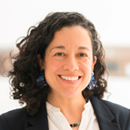
Javiera Martinez Gutierrez is an academic GP and primary care researcher. She is a research fellow and Ph.D. candidate at the Centre for Cancer Research in the Department of General Practice at the University of Melbourne, Australia. Her research focus is on cancer prevention, screening, and early detection in primary care. She is interested in community participation and the use of digital technologies to improve cancer detection and care in general practice.
She is a member of the Diversity and Inclusion Advisory Committee in the Faculty of Medicine, Dentistry, and Health Sciences at the University of Melbourne and honorary adjunct professor in the Department of Family Medicine at Pontificia Universidad Catolica de Chile.

